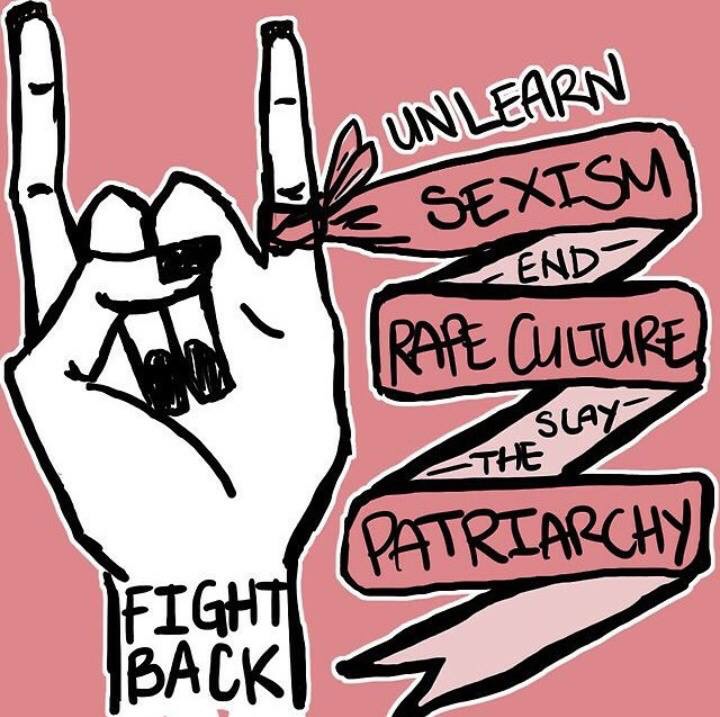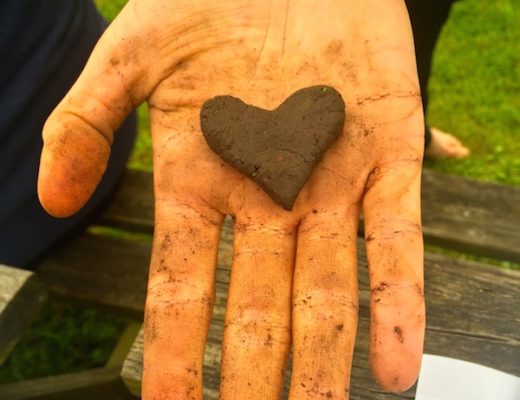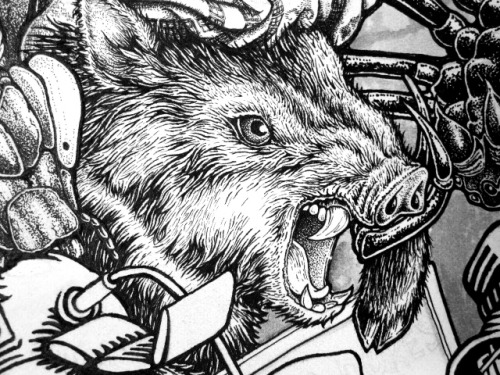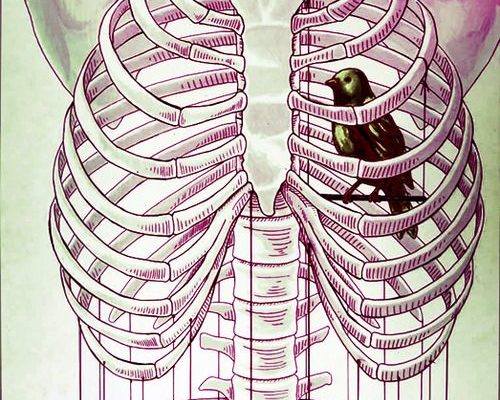This blog was originally hosted at Empty Cages Design.org as part of a series on Overcoming Burnout from 2016-2017. It has now been turned into a book that is available at: https://solidarityapothecary.org/overcomingburnout/
In my last few blogs I’ve tried to explore burnout from different perspectives with the lens of my own experience and reflections. The feedback has been moving and at times overwhelming, with tens of people emailing saying they had been feeling similar things, or observed similar patterns in themselves, their groups and movements. There has also been a very individualised response, that burnout is the necessary consequence of not looking after myself properly, and that after this I will finally take care of myself. The sense of guilt and shame has weighed heavy – is it my fault that I’ve developed these unbearable chest pains for the last three months? If I had only done X, Y, Z I wouldn’t be feeling like this.
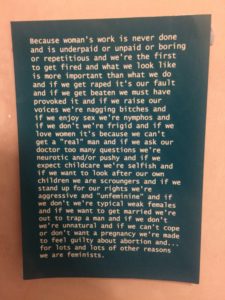 I’ve just started sessions with an acupuncturist who said actually I’m in very good health and could have faced even more dramatic health consequences had I not been so pro-active in my self care e.g. that I’m vegan, addicted to vegetables, use herbs as tonics, exercise, rarely drink or use drugs and so forth. I thought to myself, wow, maybe I have been looking after myself better than I had realised. I perceive myself as a bit of a workaholic, yet scrolling through my phone are lots of pictures of ‘downtime’ and precious hangouts and mini holidays with mates, or medicine making sessions.
I’ve just started sessions with an acupuncturist who said actually I’m in very good health and could have faced even more dramatic health consequences had I not been so pro-active in my self care e.g. that I’m vegan, addicted to vegetables, use herbs as tonics, exercise, rarely drink or use drugs and so forth. I thought to myself, wow, maybe I have been looking after myself better than I had realised. I perceive myself as a bit of a workaholic, yet scrolling through my phone are lots of pictures of ‘downtime’ and precious hangouts and mini holidays with mates, or medicine making sessions.
So which one is it? And how much does personal responsibility weigh in on our likelihood to burn out? What role do groups and the wider system play? I’ve already touched on this slightly, but for now I want to focus on gender and all the gendered reasons why engaging in social struggles burn me out as a (white) cis working class woman. Hell knows how people feel when all the other forms of oppression come into play.
Unable to sleep this morning, I wrote a list of all the things that tire me out, exhaust me and wipe me of energy when organising in ‘radical’ movements, and which ones are gendered. Please note this is the accumulation of years and years of working with cis-men and isn’t targeted at any one particular group. I have some amazing male comrades, you know who you are! Likewise, reference to women and men is not meant in a biologically reductionist way. When I say women I am generally relating this to women (trans women are women!) and femmes. Ok here we go:
- Being continuously taken for granted in projects and at events that I will fill in the details, remember the food/recipe/equipment/toilet roll or whatever. And you guys don’t have to worry because mummy Nicole will remember everything. This makes me tired.
- The constant emotional labour of caring about group dynamics, about supporting new people to feel welcome, or to mediate conflict, makes me tired.
- The invisible emotional labour of supporting people experiencing repression or trauma makes me tired.
- The invisible labour of admin to make things happen – emails, website updating, texting people etc. – that is completely unvalued, makes me tired.
- Engaging in social struggles when having other huge caring responsibilities in my life (that are also invisible in society and also exhaust me), makes me tired.
- Comparing myself or being compared to other people that are more ‘active’ because they do not have these caring responsibilities in their lives weighing on them, makes me tired.
- When women comrades have to both carry emotional responsibilities in groups, and then emotionally labour at home supporting their partners who are unable to express their feelings in a male dominated collective. This is tiring.
- Repressing all my desires to be emotionally expressive in groups for being perceived as weak, vulnerable, ‘a loose cannon’ or hysterical in a male dominated group, makes me tired.
- Worrying about my appearance because of not only society’s beauty standards, but subculture imposed beauty standards, makes me tired. Comparing myself to those that have the time/energy to invest in their appearance because they do not have the above said responsibilities, makes me tired.
- Being able to do more organising work because my paid work is more flexible, but precarious and worse paid, makes me tired.
- Losing money and livelihood opportunities to compensate for men being unable or unwilling to take time off work to invest in organising, makes me tired and broke.
- Watching dudes over and over again be unwilling to do invisible tasks such as admin, letter writing and so forth, yet take on any jobs which give them status and visibility, makes me tired. Whether that’s serving food at a fundraiser (but not cooking the food, cleaning the kitchen or organising the event beforehand), or doing more militant actions.
- Being judged as a woman, that we are somehow less radical or militant because we are less confident about kicking the shit into fascists, because we have most likely had the experience of assault or abuse and are less socialised in fighting and physical aggression. This is tiring.
- Our friendship being used to validate your gender or other radical politics as a man, makes me tired.
- When my main opportunities for accessing social or emotional connection or support from male comrades involve going to male dominated spaces like pubs, where people will stare at/objectify me, come on to me (thus commenting on me if I reject them), and if crowded will attempt to grope me or harass me, yes this makes me tired and makes me not want to hang out with you.
- Likewise being invited to free parties, raves or clubs and told I’m no fun because I don’t want to go, because I’m sick of being re-triggered or repeatedly sexually assaulted by people on drugs, makes me tired.
- Being perceived as frigid or straight because I don’t feel safe to be intimate or less boundaried with a bunch of strangers. Especially in a queer subculture or space. This makes me tired.
- Being talked over or talked down to at events and in meetings, makes me tired.
- Only achieving status and airtime for my political opinions and ideas because I’ve been in prison. This really grates me. The fact that women, especially young women, do not have influence or validity, while new young able bodied (white) men can, and are listened to and embraced. The fact that I’m a nobody until I’ve been to prison, and that being brutalised by the state is some badge of honour, really, really, really makes me tired and sad.
- Actually, when men are only interested in getting involved in a particular campaign, event or project because you want to fuck me. Your campaign effort relates to your sexual conquest, after which your interest wanes because it either happened or didn’t. Literally go screw yourself.
- Being exhausted by calling people out. Even not just about gender. Even just having to repeatedly ask for support, because my labour is so unvalued and invisible, makes me tired.
- Fearing the expected status loss from talking about gender dynamics publicly, makes me tired.
- Supporting women and non-binary friends and comrades also deal with the above makes me tired. As does supporting people respond to or recover from assault and abuse in our movements makes me tired.
- And finally, when the weight of responsibility in observing and raising these issues weighs on women, and the fault lies in me for tolerating this behaviour. I forgot, I need to fight back and smash patriarchy at all times. Well I’m sorry if I don’t have the energy to do this in meetings alongside my millions of other caring responsibilities, emotionally labouring for everyone, doing all the invisible labour that sustains the group… I will try harder to ask for support and call people out…! God forbid someone might ask how you’re feeling or actually observe the weight and pressure and do something to help.
The impact of lunching out
In my exploration of burnout, in my depths of self-doubt and shame, I’ve tried to see patterns, not to shirk responsibility but to see what needs to change so that I can interact with and experience political struggles in a more liberating way.
Another driver of burnout I’ve witnessed is repeated patterns of people ‘lunching out’ and the effect on those holding the fort. Lunching out is a catch all phrase for folks that don’t follow through on what they said they would do, but not communicated their inability to do it. Therefore causing unpredicted increases of workload and strain on other people.
In Gaia University, one of the first modules is managing time and promises. This involves developing systems to be accountable for our actions, managing our lives better and most importantly, better communicating and negotiating our promises.
No one can fulfil all their promises, so it is important to communicate with honesty and negotiate them. If you can’t do something, you tell people. Being ill, I’ve had to regularly email my associates and apprentices saying I don’t have the energy to Skype, or that my review of their work will face delay because I’m ill. The more we all communicate our ability to fulfil our promises, the less chance of harm. (I’m still not perfect, obviously!)
A lot of guys can have a big pattern of poorly managing their time because they’ve always had some woman in their life doing this invisible work whom they completely take for granted. It’s my opinion that not taking responsibility for your calendar, commitments and communication systems within a group harms people. And lunching out has a cumulative effect on people that carry the workloads of groups, who are nearly always women.
I know not everyone has the intention of lunching out. They may be doing their absolute best to get something done but are struggling [most likely alone and unsupported] with an illness, mental health issue or long term pattern they are trying to change. Precarious housing, jobs, unexpected accidents etc. of course all happen.
A healthy group will communicate about their own limitations as individuals. Perhaps even flag up their behaviour patterns if needed and the support they need to get things done. I’m sure a lot of why I’m feeling so shit right now is because most of my adult life as an organiser, I’ve been continuously left holding huge weights on my own. It accumulates and weighs heavy as I ache for rest and respite.
So my questions for folk involved in collectives is to ask yourselves:
- How is the division of labour in your group?
- How does everyone, particularly women and non-binary folk, feel about that division of labour?
- Who tends to do the most emotional/social work of making sure people feel ok/comfortable and relaxed in the group?
- What are everybody’s responsibilities outside of the group that may affect how they interact with the group?
- What is the status of these responsibilities in society generally?
- How regularly do you ask people how they are feeling?
- What challenges are people experiencing that mean people are afraid to communicate about any tasks they are unable to complete?
- How can we create more supportive group cultures where there is encouragement for honesty?
Anarchist men have given me hope and inspiration. They have made me feel safer in a fucked up world. They are some of my best friends and there are no other comrades I’d want at my side than you particular dudes. But we all have shit to learn, and I hope my recovery from burnout doesn’t just rest on support and emotional labour from my comrades that identify as women, femme or non-binary.
I hope to write about this topic more and explore it from different perspectives, even get some studies noted that have done some realtime research about these patterns. I’m excited about being part of the collective change that is happening in our struggles and lives for more radical honesty, emotional literacy and mutual aid.

